
Year 8 | 2025


Year 8 | 2025


Christian College embraces the needs and passions of 21st century learners and our students are blessed to have on offer a vast array of new learning opportunities. All students are encouraged to become active participants in their own educational journey, as they are given greater autonomy to learn and a voice to direct where that learning might seek relevance. Christian College is proud of the engaging subjects and pathway programs that we offer our Middle School students, with specialisation and experiential learning being implemented from Year 5.
This course selection handbook provides an overview of the studies available in 2025.
The core and elective offerings are part of the learning landscape at Christian College that aims to support each student to identify their passion for learning, their ability to think, solve problems and to manage their individual learning. We want our students to become well rounded positive contributors through the way that they make global connections and seek to connect deeply with others. At the end of their journey at Christian College, our students will be ready to make a positive difference to the lives of
others, through ‘good work’ that is excellent, ethical and engaged in local, national and global contexts. I look forward to partnering with all families in support of your precious young people, as they look towards their 2025 studies.
Yours faithfully,

Natasha Troop

Natasha Troop Head of Campus

The diverse and challenging curriculum at Middle Years is guided by the Australian Curriculum. It offers a breadth and depth of learning opportunities tailored to suit the unique learning needs of our students. Each opportunity develops core knowledge and skills within each subject area, as well as developing capacities in our students within the General Capabilities and Cross Curricular opportunities. Every student will experience a broad range of subject areas within our program comprised of whole year and semester based opportunities, these are complimented by a wide range of elective choices catering to the needs and interests of our learners.
Students in Year 8 will participate in the following core subjects for the whole year:
• Christian Education
• Digital Technologies
• English
• Health and Physical Education
• Languages – Indonesian or Japanese
• Mathematics
• Science
• Wellbeing
In addition, the following subjects will be studied for one semester:
• Geography, Environmental and Outdoor Studies
• History

In Year 8, Christian College students continue to choose some of their own subjects, in line with their specific interests and areas of passion. Year 8 students complete two elective subjects per semester, for a total of four for the year.
On the back page, you will find a ‘Subject Selection Worksheet’. This is intended to be used as a resource for students and families, while you are considering the subjects on offer. You may like to print it for ease of use.
Begin with your choice of Indonesian or Japanese, which you will study for the whole year at Year 8.
For the elective subjects in the table on the selection worksheet, rank your top 8 preferences, with 1 being your first preference, 2 being your second preference, and so on. It is recommended that you select your most preferred electives in rankings 1 to 4. However, please note that you may not get your perfect choice of all subjects, so please take the time to list your top 8, in order, carefully.
Please note that subjects identified in this booklet with a double asterisk (**) can be selected for one or two Semesters of study.
To formally submit your preferences, please follow the instructions sent to you in your school email account. For students new to Christian College in 2025, please check your parent/guardian’s email account for the instructions.
$ Subject Levy
Some Elective subjects have additional costs beyond the standard College tuition fees. These subjects, as listed in the booklet, include:
• Subjects with overnight excursions involving accommodation and/or other travel expenses.
• Subjects requiring significant resource and/or equipment purchases.
If a student enrols in a subject with a listed levy amount, this cost will be applied to the College Fee Account at the beginning of the year.
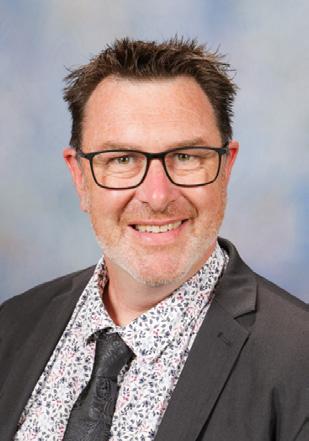
Antony Benson Executive Director of Teaching and Learning


Students studying Indonesian at Christian College are becoming increasingly aware of the role they play in a global society. Learning ‘Bahasa Indonesia’ provides students with an enhanced intercultural understanding and the ability to communicate in ‘Bahasa Indonesia’, a widely spoken language in countries of South East Asia.
Opportunities exist for Indonesian language students to host a visiting exchange student from SMAN2 Mataram and participate in a study tour and/or long-term exchange to Lombok during the Senior School years.
Students will further develop their confidence in communicating on personal and practical everyday topics, such as family and self, food and going places, through relevant and engaging language activities. They will also gain knowledge of Australia’s relationship with Indonesia and its variety of culture and lifestyles.

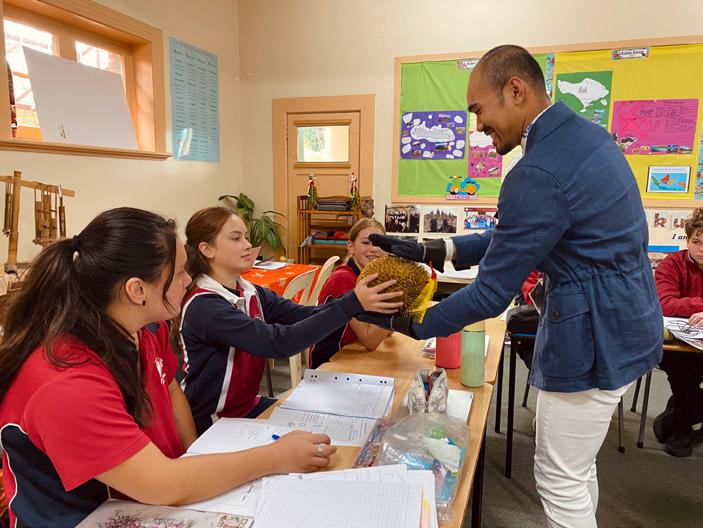

In this unit, students communicate in Japanese about themselves, their daily lives, leisure activities and learn about Japanese food culture. Students will use revision techniques to enhance their vocabulary study (self-introduction, family, dates, numbers, pets, hobbies and interests, time words, time, daily routine, eating/drinking). They will gain knowledge of Japanese culture and lifestyles through working with our native language assistants and use their communication skills for various assessment tasks. They will gain intercultural awareness and knowledge of Japanese culture and lifestyles, and continually develop as informed global citizens. At Senior School there are opportunities for short or long-term exchanges with Naga High School and participating in the Asian and Oceanian High School Students’ Forum in Japan for which skills in basic communicative Japanese are essential. Exchange programs will be subject to International and Australian Government travel regulations at the time.
Would you like to study both languages in Year 8?
Students may wish to study both languages in Year 8. In this case, they must select Japanese as their preferred language, then rank Indonesian Elective as their number 1 ranked elective choice. In this case, Japanese will be studied for the whole year, and Indonesian studied for one semester.




The Visual Arts is a critical way in which we communicate and express meaning in the world around us. In this elective, students build on their awareness of how and why visual artists realise their ideas through different visual representations, practices, processes and viewpoints, they extend their thinking, understanding and use of perceptual and conceptual skills.
Students consider the qualities and properties of materials, techniques, technologies and processes and combine these to create and produce solutions to their artworks. They develop an informed opinion about artworks based on their research on selected artists and examine their own culture and begin to develop a deeper understanding of their practices as an artist who holds individual views about the world.


Get ready to unleash your creativity and explore the exciting world of acting in this dynamic elective! In “Actor’s Tools,” you’ll dive into the fascinating art of vocal and physical expression on stage. Students focus on, exploring vocal and physical expression on stage. They develop nonverbal communication skills through the discipline of mime and learn various vocal conventions such as chorus and soundscape.
What You’ll Do:
Vocal Mastery: Learn how to use your voice in powerful ways, from creating soundscapes to mastering chorus techniques.
Silent Stories: Develop your non-verbal communication skills through the engaging discipline of mime.
Expressive Movement: Discover how to use your body to convey character and emotion, focusing on elements like energy, timing, and the actor-audience relationship.
Collaborative Creations:
Work with your classmates to bring a picture book to life! You’ll analyse the meaning behind images and text, and use your newfound acting tools to transform stories into captivating performances.
This elective is perfect for anyone looking to enhance their acting skills, build confidence, and have a lot of fun along the way. Come join us and let your inner actor shine!


A picture tells a thousand words and capturing an audience through a single image is essential, as we all communicate through visual mediums and it is core to contemporary information, be it through social media, journalism, marketing, and advertising or as a beautiful emotive expression. Media provides students with a series of enjoyable, creative opportunities to develop digital artworks which may express what they see, know, feel, and/or imagine. The world in which we live is increasingly becoming a digital society with a rich and wide variety of digital mediums. Students develop skills in using computers, digital equipment, materials and techniques. These are developed during the unit through problem solving and experimentation.
Students analyse connections between visual conventions, practices and viewpoints that represent their own and others’ ideas and learn to identify elements and principles integral to the construction of well composed images that help convey a purpose or meaning. Students are also encouraged to expand their knowledge of digital still and moving images, sound and editing digital mediums. This could be through a variety of media from photography, web site development, animation, filmmaking, game design, etc.
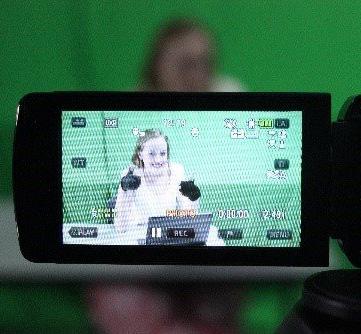

In Year 8 Music Elective, students will learn about a wide range of musical styles while performing on classroom instruments and/ or instruments of their choice. Students learn about the ‘grooves’ of various styles of contemporary popular music including Pop/Rock. They learn about the role of the rhythm section while rehearsing and performing in bands/ensembles. The unit consists of activities to develop students’ general musicianship and performance skills. These will include: rehearsing and performing; composing and arranging; music theory; aural skills; listening to a broad variety of music; and group performance workshops. *Students who learn an instrument within the Instrumental Music Program will really enjoy utilising their skills in this Music Elective. As well as students who already play an instrument, this elective will cater for students who enjoy music and playing instruments. Students may choose to study this elective for one or both semesters.
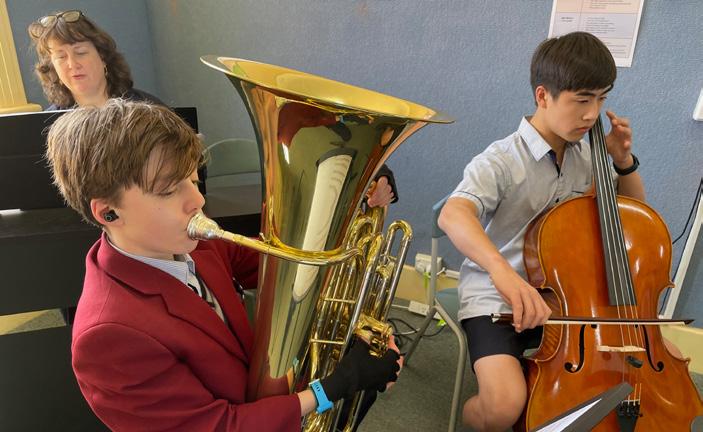




The ability to safely prepare healthy and nutritious food options for yourself and others is an essential skill. In Food Studies, students increase their understanding of safe procedures and hygienic work practices in the kitchen whilst developing more complex processes.
Students demonstrate their knowledge about diet and nutrition to enable them to evaluate their own diets and make wise food choices for optimum health, both now and in the future. They examine and critique food labelling so that they are able to make informed consumer choices and they continue to develop skills and experiences in practical cookery, which may be translated into ‘real life’ contexts.
Students design and develop a variety of meal and snack options for themselves and others. They develop criteria for success, including sustainability considerations of food production in local and global contexts, and use these to judge the suitability of their ideas and designed solutions and processes.
Subject levy: $30
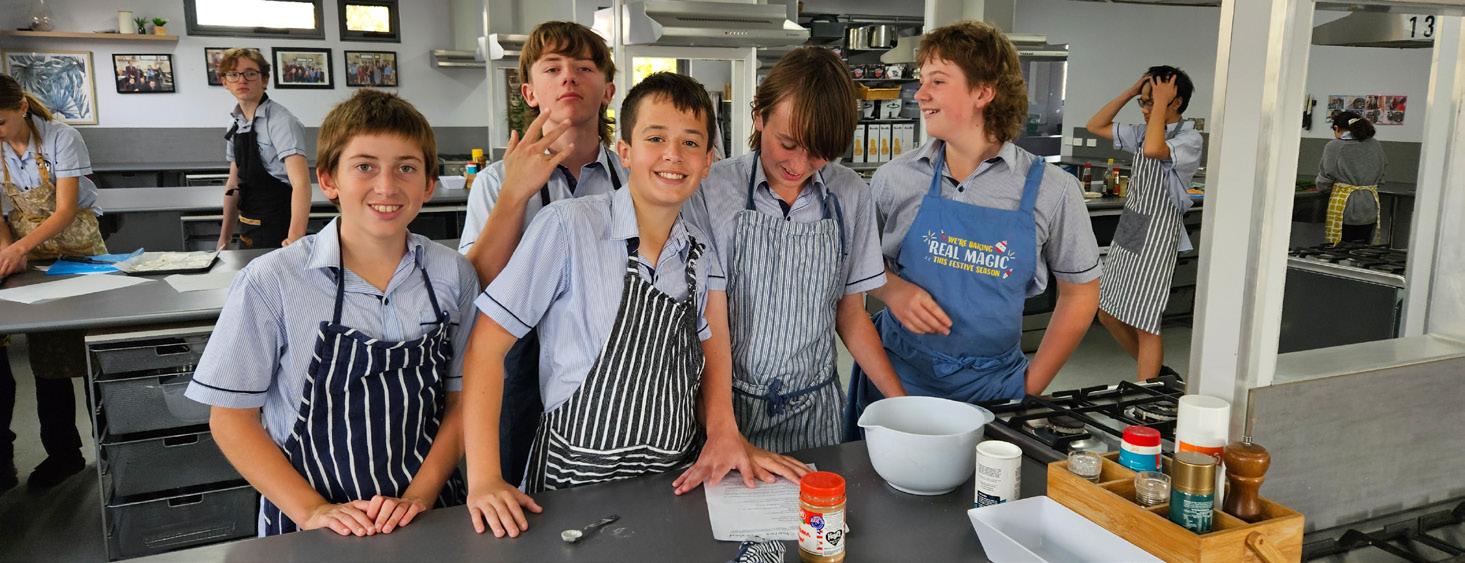

Product designers invent, visualise and prototype design solutions to problems in the form of new products. Product Design and Technology (Materials) challenges students with the task of developing increasingly complex approaches to product development, utilising a range of materials and technologies.
Students will utilise the design process to create solutions based on an evaluation of needs or opportunities. They develop criteria for success, including sustainability considerations, and use these to judge the suitability of their ideas and designed solutions and processes. They communicate their ideas through a design folio. This forms the basis for the refinement and evaluation of projects and designs.
Safe work practices in the handling of tools and equipment are reinforced within the workshop setting.
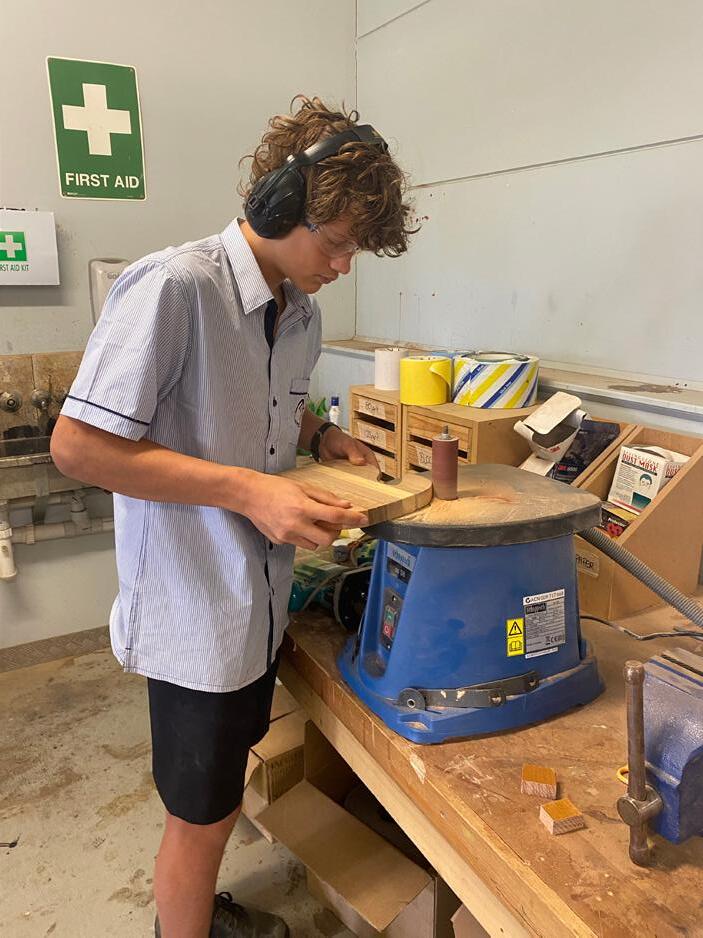

Textiles are a major component of our material culture. They may be viewed as the products of technology, as cultural symbols, as works of art, or as items of trade. Students apply creative and practical techniques to develop both hand and machine sewing skills through the production of textile items. Students utilise the design process to create solutions based on an evaluation of needs or opportunities.
Using a range of textile technologies including a variety of graphical representation techniques to communicate, students generate and clarify ideas through sketching and annotated concept sketches. They develop plans to manage design tasks, including safe and responsible use of materials and tools, to successfully complete design tasks.
Students establish safety procedures that minimise risk and manage a project with safety and efficiency in mind when making designed solutions.


(Robotics / Electronics)
Robotics, Engineering and controlling integrated mechanical, electrical and digital systems are integral parts of our modern society. In this elective, students will demonstrate an emerging understanding of the design and evaluation process and analyse how motion, force and energy are used to manipulate and control electromechanical systems.
Utilising Lego Mindstorms with basic input sensors students will develop and code an autonomous robot that will negotiate a course, the robot could encounter obstacles, bridges and short cut opportunities that will challenge the most intrepid programmer.
Students will also explore, manipulate and build basic electronic circuits including electrical switching and electronic components and apply practical skills to produce an integrated systems project.
Students apply project management skills to document and manage production processes. They independently and safely produce effective designed solutions for the intended purpose demonstrating lateral thinking, developing new skills related to the correct use of tools, equipment and construction, techniques.



The way people consume their information is changing dramatically each and every day. With branding, marketing, packaging, promotional material, architectural and product design, and the rise in visual mediums such as blogging, live-tweeting, and print media, the way you connect with and reach an audience is ever changing.
Visual Communication Design examines the way visual language can be used to convey ideas, information and messages. Students develop the skills to manipulate and organise design elements, design principles, in selected media and materials.
Creative, critical and reflective thinking supports students to progress through and focus on the design process. This subject relies on drawing as the primary component of visual language to support the conception and visualisation of ideas.
Students generate and represent original ideas in two and three-dimensional representations using a range of technical skills. They produce illustrated, and rendered views, and use graphic visualisation software to produce dynamic visual communication design solutions.



Digital Technologies Elective at Year 8 provides students who have a special interest or career aspiration in this field with an opportunity to delve deeper and extend on the knowledge, skills and processes developed within the core Digital Technologies subject that all students complete.
Students interested in software development, game development, design and digital technologies should consider taking this elective. This elective subject has a strong emphasis on project-oriented learning within the context of a coding and software development focus. Students wishing to undertake this subject should be prepared to apply independent problem-solving, collaboration and self-directed project management skills.
Over the course of this semester-long subject, students will complete two major projects – the creation of a functional app using Python and a retro arcade game development project using Microsoft Make: Code.
This subject provides a strong foundation and basis for students aspiring to undertake the Year 9 Digital Technologies elective subject. It will provide students with opportunities to develop highly relevant and transferable skills such as computational thinking, problem solving, project management, self-directed learning and collaboration.
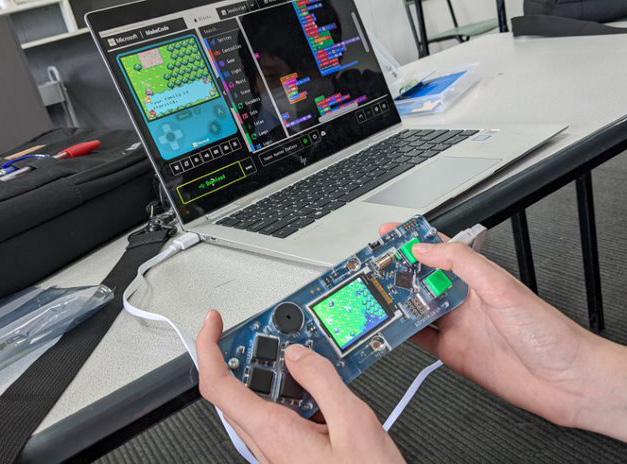


This subject provides students who love writing with an opportunity to explore and develop their skills in this area. The course is dynamic in nature, allowing students to have a level of choice in the subjects they write about and the forms they produce.
Students will receive regular feedback from both their teacher and peers, with an emphasis on refinement and development through the writing process.
They will be challenged through a variety of stimuli, audiences and purposes, in order to extend their creative thinking and writing capacity.
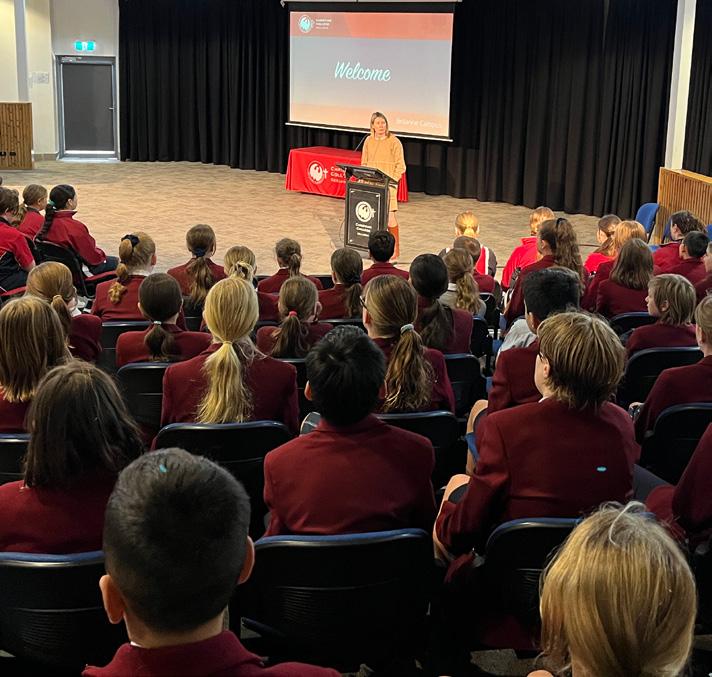
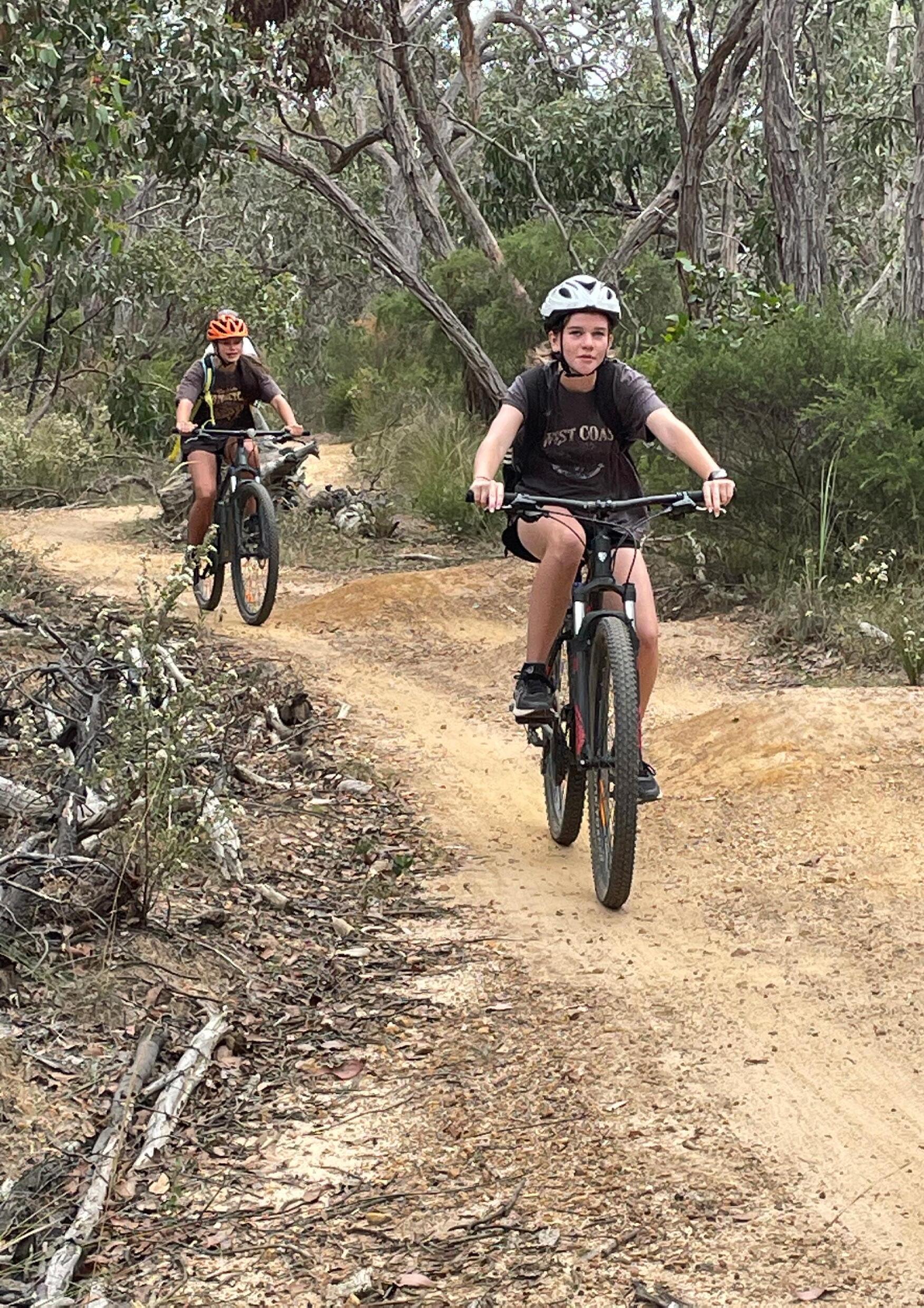

Students studying Marine Studies will be introduced to marine environments, practical snorkelling skills and species adaptations. Students will be immersed in field base experiential learning to engage them in understanding the structural, behavioural, reproductive, and physiological adaptations that assist in the survival of the species. Practical snorkelling sessions will take place during term 1 or 4 and term 2 or 3 will focus on intertidal investigations, dissections and a visit to the marine discovery centre. Lab based experimentation and project work will complement the practical elements and help the students investigate questions developed during their hands on experiences. The focus of this unit will be on survival skills of species and the word ‘Adaptation’ with reference to different species. For further information, please contact Mr Cassidy Hurrell: c.hurrell@ccg.vic.edu.au

Subject levy: $180
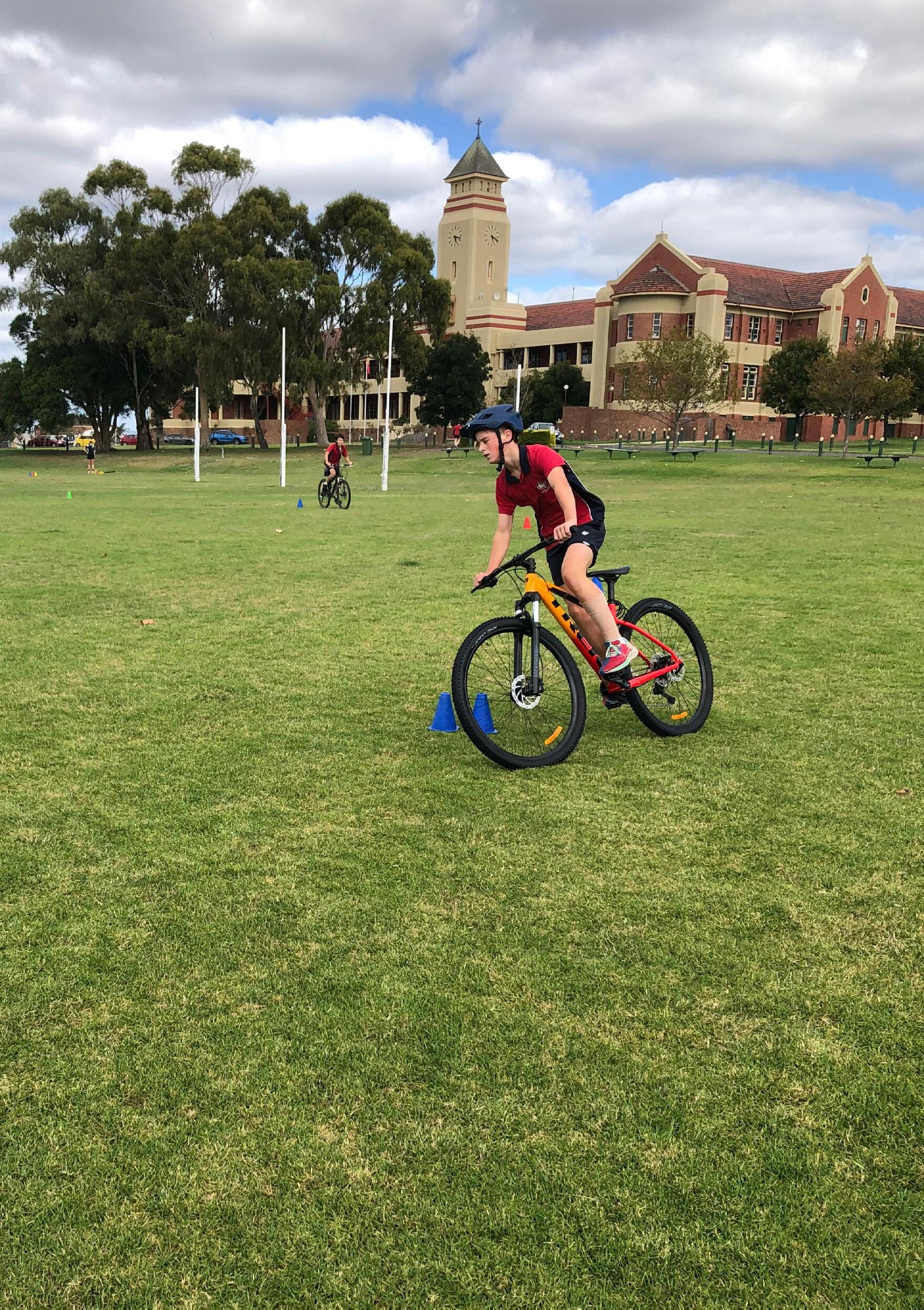

This elective will aim to be the ‘one stop shop’ for giving the students an insight and the ability to practice what professional and compiled research suggest in being an ‘athlete’. Building a base knowledge of all elements of what is used to improve someone’s physical, mental, spiritual and emotional wellbeing. Grounded in a scientific sport performance model the teaching will evolve around a holistic long term growth model. Each week students will learn, conduct and practice specifics for performance. Not aligned simply with training just the body there will be sub-topics such as movement analysis, recovery protocols, nutrition, goal setting and mentoring.
There will be opportunities for online learning concurrently that will be outside of the set program that students can use as an extra dimension for their learning. Similarly, students will have opportunities for mentoring opportunities with certain staff to assist in their growth as ‘student-athletes’. This being the idea that the student is the priority and then the athlete comes second.


(Semester 1)
The Interschool Sport elective involves students competing for the school in Netball, Soccer, Hockey or AFL. Each of the sports is offered for both male and female students. The program continues to build on the sporting knowledge and understanding the students have, in addition to developing the skills required for their respective sport.
In Term 1, students will be involved in training sessions and education sessions in preparation for competition in Term 2. In addition to this, students will have the opportunity to learn about and participate in a range of international sports. During Term 2, students will compete in a round robin competition for their chosen sport, which is conducted by Geelong Independent Schools Sports Association (GISSA).
Subject levy: $55
(Semester 2)
A wide range of sports are offered in Interschool Sport (Semester Two). In Term 3, students have the opportunity to compete for the college in Basketball, Badminton, Table Tennis or Gaelic Football at the Geelong Independent Schools Sports Association (GISSA) competition.
In Term 4, students will compete against other Geelong-based Independent Schools in either Cricket, Tennis, Volleyball, Softball or Water Polo in a round robin competition conducted by GISSA.
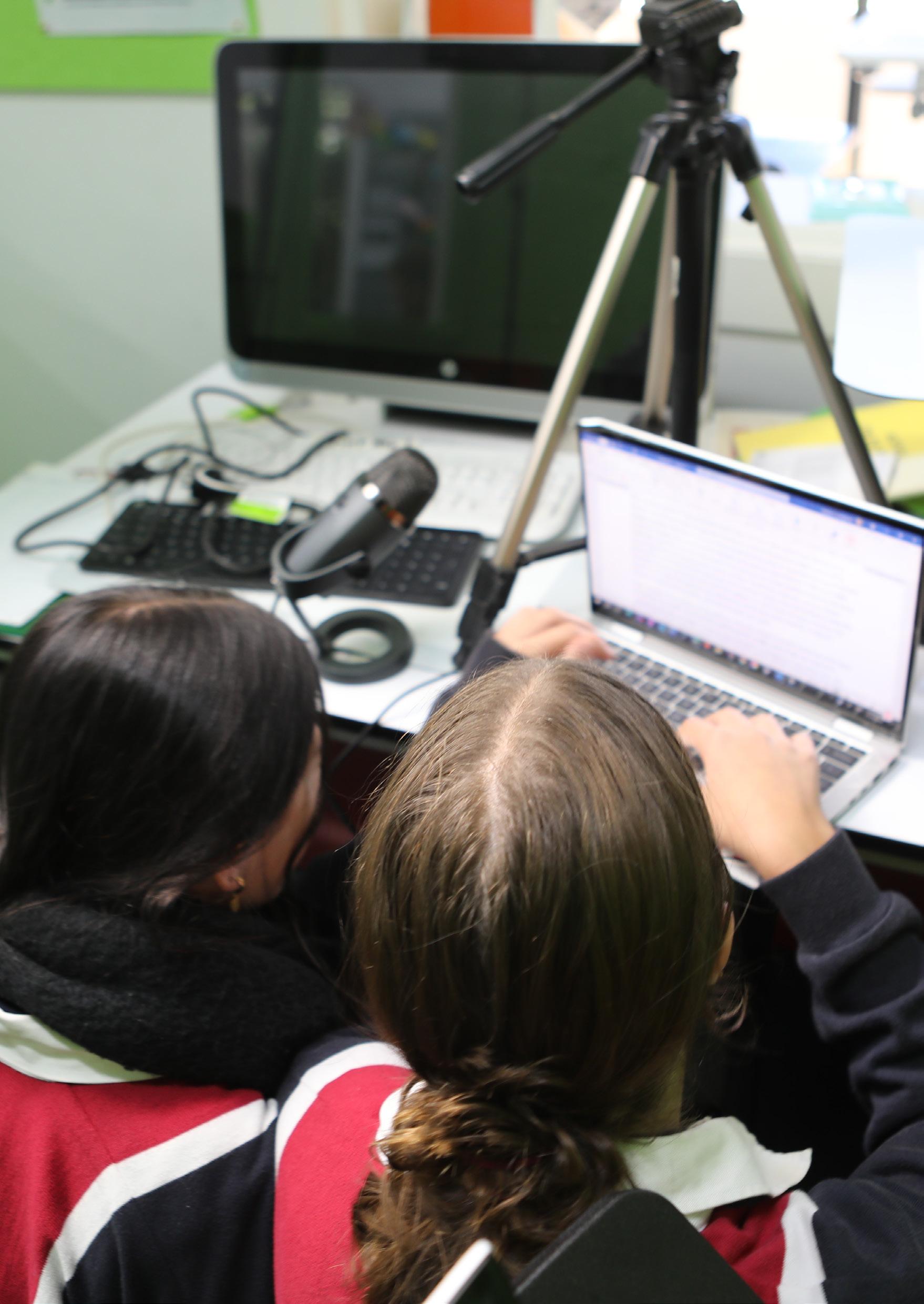

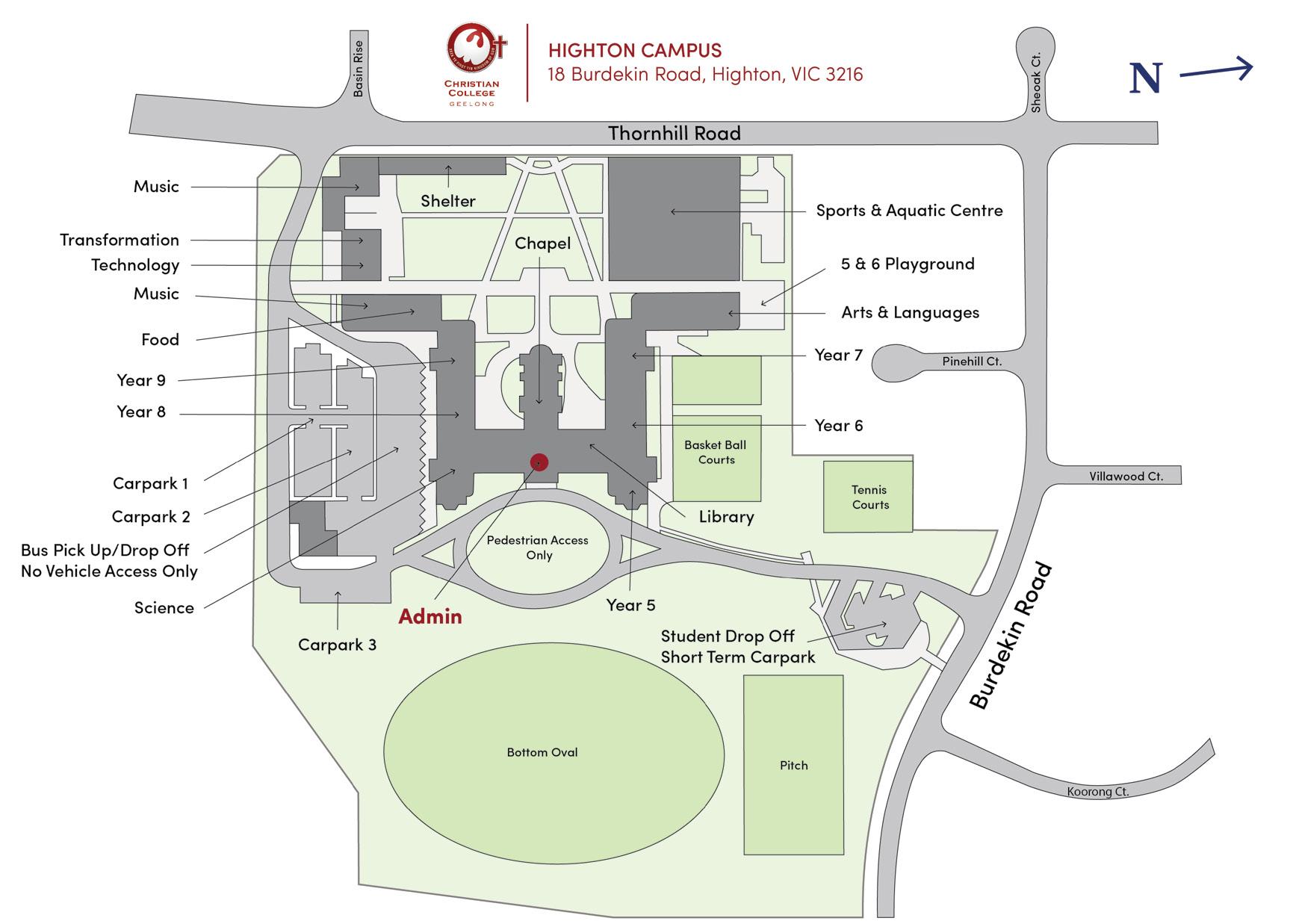

Language Notes
Indonesian Japanese
Tick
Electives Rank 1-8
Drama Media
Music Elective**
Music Elective - Additional Study
Art Making and Exhibiting
Digital Technologies - Elective Food Studies
Product Design - Materials (Wood, Metal & Plastics)
Product Design - Textiles
Systems Engineering (Robotics / Electronics)
Visual Communication Design
Writers’ Workshop
Marine Studies
Indonesian Elective High Performance Athlete
Interschool Sport (Semester 1)
Interschool Sport (Semester 2)
